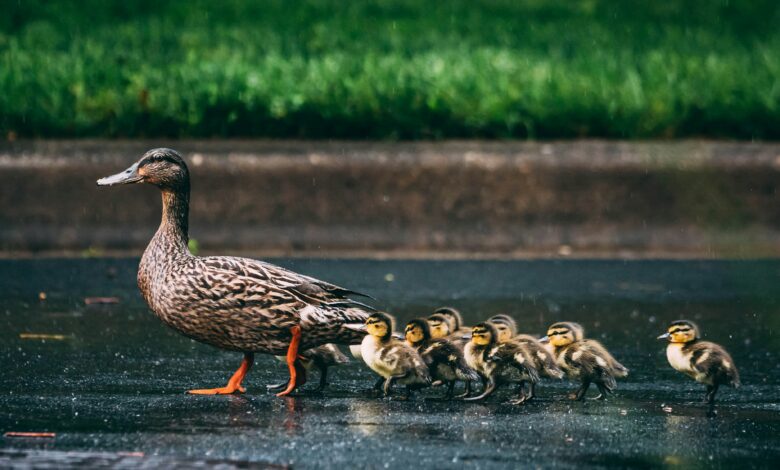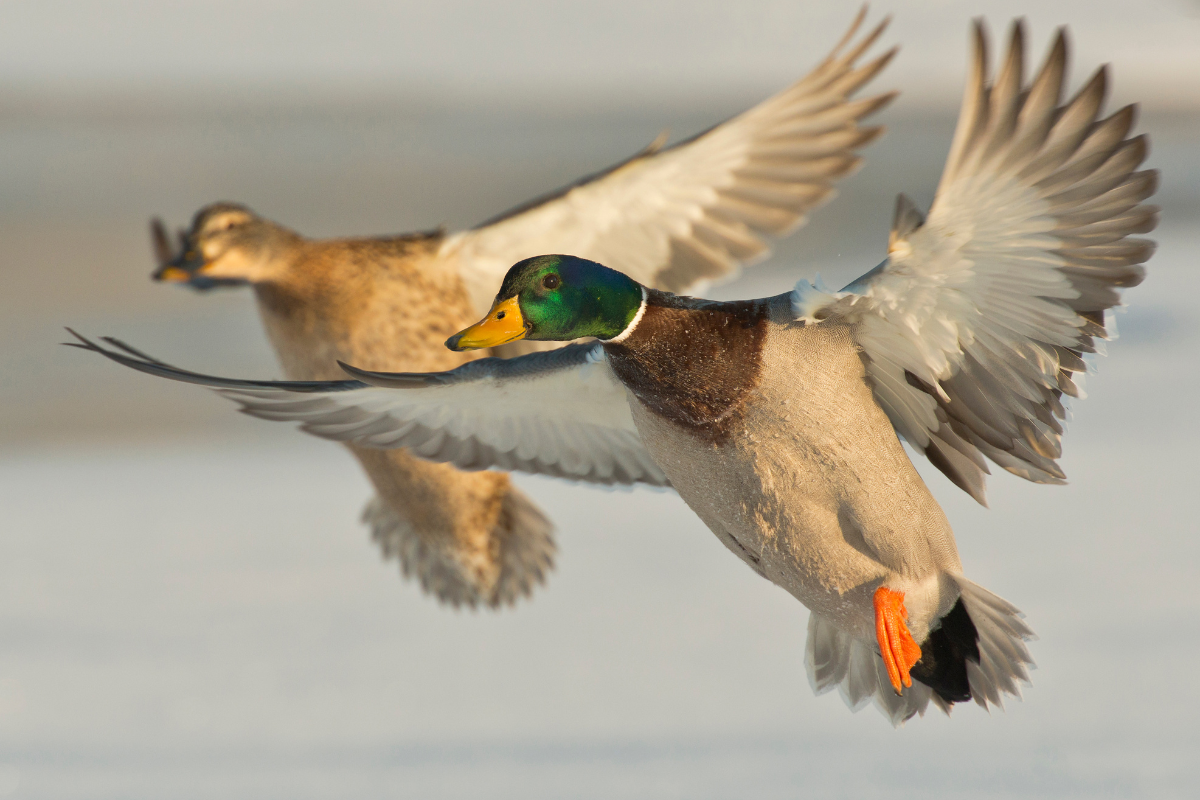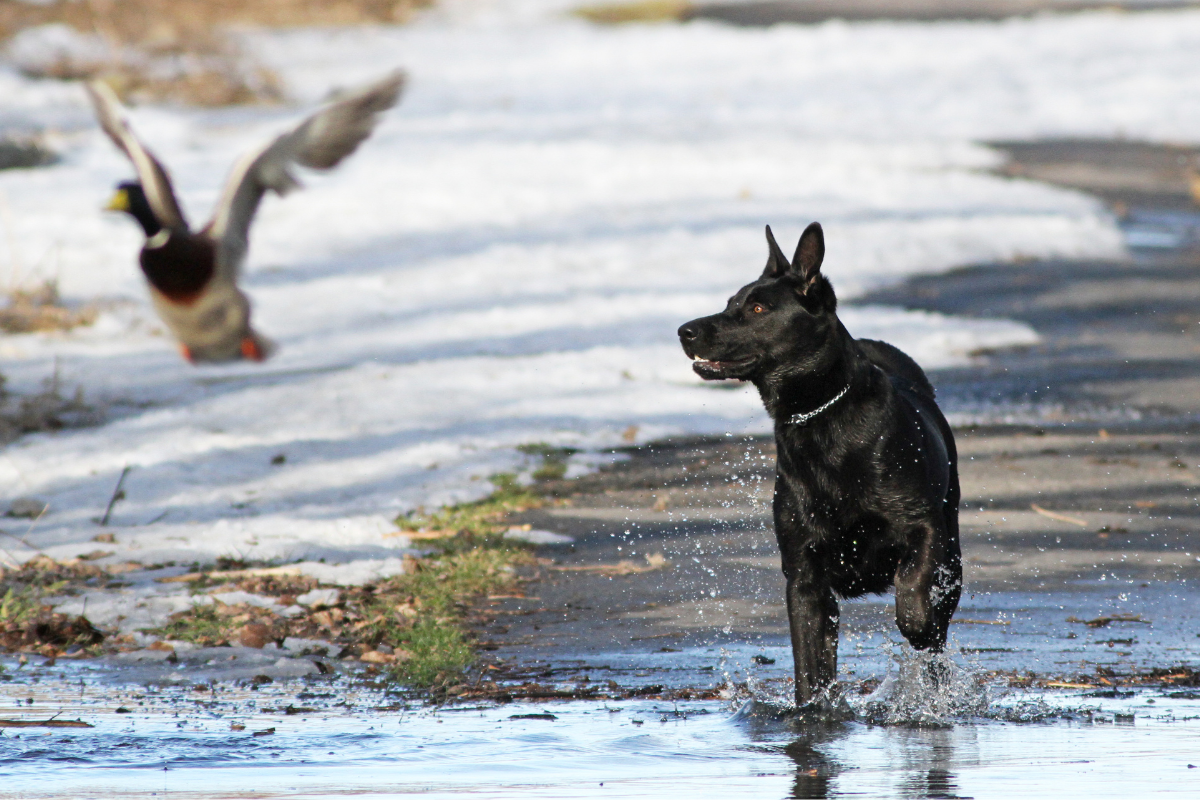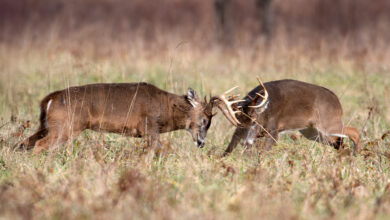How Long Do Ducks Live? What You Can Expect

As a dunk hunter or homesteader, it’s important to understand the typical life expectancy of a duck. Ducks are resilient creatures, but their lifespans can vary quite a bit depending on the species and the environmental conditions.
I did some research to find out the typical lifespans of different duck species, as well as the key factors that answer the question…how long do ducks live? Here’s a rundown of what you can expect.
Check out the video below on the latest Flyway Duck Hunt for an inside look at the action:
Mallard Duck Lifespan
When you picture a duck, you’re most likely envisioning the classic mallard. These ducks are found across North America and are a favorite among hunters. In the wild, a mallard ducks lifespan on average is 5-10 years.
Keep in mind though, that’s just an average. Mallards go through a ton of threats and hazards that keep many of them from reaching old age. Predators like hawks, foxes, and raccoons are a constant danger, especially for young ducklings fresh from the nest. Harsh winter conditions, scarce food sources, and illnesses or injuries can also cut a mallard’s life short.
The mallards who are lucky enough to survive and avoid these threats can push toward the upper limits of their potential lifespan in the double digits. But achieving those elder years as a wild mallard isn’t easy.
Domestic Mallard Duck Lifespan
Well-cared for domesticated mallards can significantly outlive wild mallards. How long do mallards live? With proper housing, nutrition, and protection from predators, it’s reasonable for a pet mallard to reach 12-15 years of age.
Wild Muscovy Duck Lifespan
Another notable duck species that many hunters are familiar with is the muscovy, native to Mexico and Central/South America. These distinctive birds sport iridescent feather patterns and fleshy pouches around their eyes and beaks.
In their natural range, wild muscovies tend to live 8-12 years on average. While longer-lived than mallards, muscovies still face the same amount of predators as well as threats like starvation and diseases that can prematurely end their lives.
The muscovy’s larger size compared to mallards may slightly improve their chances of fending off certain smaller predators. But overall, surpassing the typical 8-12 year lifespan requires serious hardiness and a lot of good luck for a wild muscovy.
Domestic Muscovy Lifespan
The muscovy is another popular duck breed kept domestically. Domestic muscovies, like mallards, can outlive their wild kin by a long shot when given a safe, healthy environment. There are reports of domestic muscovies reaching the ripe old age of 20 years!

Understanding Duck Mortality
When examining how long ducks live, it’s essential to understand what actually ends their lives. For wild ducks, the journey is perilous from the very beginning.
From Egg to Flight
The mortality of wild ducks begins at the egg stage, with many eggs never making it to hatching. Predation is the primary culprit, with various animals destroying duck nests and consuming eggs before they have a chance to develop.
The remainder of egg losses can be attributed to flooding, severe weather events, and other environmental hazards. Even after hatching, ducklings face numerous threats as they develop. Many young ducks fall prey to predators before they ever develop the ability to fly.
Only a small fraction of all eggs laid ultimately result in ducks that reach adulthood, illustrating the incredible gauntlet wild ducks must run simply to reach maturity.
Adult Duck Mortality
Once ducks reach adulthood, their survival rates improve substantially, though challenges persist throughout their lives. Male ducks (drakes) generally survive at higher rates than females (hens) in the wild. Humans become the primary predator of adult ducks during hunting season, accounting for a significant portion of annual duck mortality.
Beyond hunting pressure, adult ducks continue to face threats from natural predators like bald eagles, foxes, and large predatory fish. Extreme weather conditions can cause significant mortality, especially during migration or harsh winters when food becomes scarce and exposure becomes dangerous.
Collisions with power lines and other human-made structures claim numerous duck lives annually, while outbreaks of avian influenza and other diseases can sweep through populations with devastating effect.
Interestingly, survival rates generally increase as ducks age.
Older, experienced ducks develop better strategies for finding food and avoiding danger, building what researchers describe as a “library” of knowledge about safe locations and food sources. This accumulated wisdom creates especially successful older ducks that know how to consistently find food, avoid predators, and raise young successfully year after year, despite the odds stacked against them.
Factors That Impact Duck Lifespan
Both mallards and muscovies have baseline longevity determined by their species. But numerous environmental factors can cause their actual lifespans to veer higher or lower from the averages. Some key influential factors include:
Predators
In areas with more predators like hawks, coyotes, bobcats, and large fish species, ducks will have shortened lifespans due to higher mortality rates from getting killed for food.
Environmental Conditions
Unusually harsh winters, droughts reducing wetland habitats, and other unfavorable climate factors will stress wild duck populations and take a toll on their lifespans.
Disease and Toxins
Outbreaks of diseases like avian flu or ducks ingesting toxic contaminants in watersheds can decimate duck numbers and limit their longevity potential.
Sex
There is some evidence that male ducks (drakes) may have slightly longer lifespans than females in the wild. The physical toll of producing eggs each breeding season is hypothesized as a factor impacting longevity in female ducks.
Production Approach
For managed populations of ducks raised for hunting clubs or game farms, the production approach can impact lifespan.
Ducks bred intensively for meat or fertile egg production often have shorter lifespans than wild ducks or those maintained as sustainable flight ponds. Overproduction creates physical stress.
Food Abundance
In areas with ample natural food sources like protein-rich insects, seeds, and aquatic plants, ducks have increased chances of reaching their maximum lifespan.
Human Impacts
Activities like wetland destruction, overhunting, and pollution all negatively impact the health and lifespans of wild duck populations.
Living Situation
As a homesteader, the overall living situation and environment you provide for your ducks plays a huge role in their longevity and wellbeing.
Ducks kept in a cramped, dirty backyard run will face more health challenges than a flock given a clean, spacious area to explore with a pond and plenty of fresh air and sunshine. Ducks are happiest when their natural needs are met as close as possible.
Personality
Every duck is an individual, and their unique personalities can impact how long they live in subtle ways.
For example, some ducks are extremely calm and unbothered by things like construction noises or thunderstorms that may stress out other ducks. Less stress means better health outcomes.
Domestic Duck Breed Selection
For homesteaders raising domestic ducks, the breed you choose can significantly influence the lifespans of your flock. While most domestic duck breeds today descended from mallards, there is variation in longevity between breeds.
In general, heritage duck breeds bred for hardiness and self-sustaining traits like foraged feed and natural incubation tend to be longer-lived than industrial breeds pushed for maximum egg or meat production.
Some particularly long-lived duck breeds for homesteaders to consider include:
- Saxony: Calm, dual-purpose birds averaging 10-15 years
- Ancona: Hardy foragers known for active lifespans up to 20 years
- Magpie: Friendly, self-reliant ducks often living 12+ years
- Welsh Harlequin: Distinctive markings and longevity up to 18 years
In addition to breed, factors like providing ample ranging areas, high-quality feed, protection from predators, and managing egg production will help maximize the lifespans of your ducks.
Whether hunting or domesticating ducks, understanding their longevity and what impacts it allows you to make the best decisions for sustainable management.
Protecting Your Duck Hunting Grounds
For hunters and duck hunting dogs looking to consistently harvest mature ducks year after year, protecting and managing wetland habitats is critical. The quality of a duck’s environment directly impacts its lifespan and the overall success of local breeding populations.
Key factors hunters should prioritize for prime duck hunting grounds include:
- Eliminating pollutants and toxin runoff that can contaminate food and water sources
- Maintaining ample natural food sources like insects, aquatic vegetation, and grains
- Preventing encroachment or destruction of wetlands from development or agriculture
- Limiting hunting pressure to sustainable levels without overharvesting
By actively supporting conservation efforts and ethical hunting practices, you ensure ducks will have the hospitable homes they need to thrive and reproduce successfully over their full lifespan potential.

How Long Do Ducks Live: Frequently Asked Questions
Here are some frequently asked questions regarding a duck’s lifespan.
How long do pet ducks live?
On average, well-cared for pet ducks (excluding meat/egg production flocks) can live 8-12 years. But it’s not uncommon for beloved backyard ducks to reach 15-20 years when given excellent care and living conditions.
Do female or male ducks live longer in the wild?
There is some evidence that male ducks (drakes) may have a slightly longer lifespan than females on average. The physical demands of egg production each breeding season are thought to take more of a toll on the bodies of female ducks over time.
How can I tell how old a duck is?
Determining a duck’s exact age is challenging without records, but some indicators include:
- Leg band information (if present)
- Bill color and wear (bills often darken and show more wear with age)
- Feather quality and plumage intensity (older ducks may have duller plumage)
- Behavior and activity level (older ducks typically move more slowly)
- Without definitive markers, most aging estimates remain approximate.
What is the maximum lifespan of a wild duck?
For mallards and muscovies in their native habitats, the maximum lifespan on record is around 15 years old. But, going over 12 years of age is extremely rare for a wild duck. Their lifespans are constrained by the constant threats of predators, disease, environmental conditions, and other hazards.
Do different wild duck breeds live longer than others?
Among common wild duck species, there isn’t a huge variation in maximum lifespans between breeds. Species sizes, behaviors, and metabolisms are relatively similar. Environmental factors like habitat quality tend to be much bigger drivers of duck longevity.
At what age is a wild duck considered elderly?
For most wild duck species, once they hit 7-8 years old they can be considered entering their elderly years and facing increased risks and physical decline associated with old age. Relatively few wild ducks live active, healthy lifestyles past age 10.
At what age should I cull non-productive ducks?
The decision on when to cull non-productive or elderly ducks ultimately comes down to your personal philosophy and reasons for keeping a flock.
If raising ducks for a working homestead where eggs and meat production are priorities, you may want to cull females around 6-8 years old when egg output declines. Non-productive males can be culled even earlier.
But, if your ducks are primarily pets, companions, or breeding stock, you may opt to simply let nature take its course. Many homesteaders keep non-productive ducks around for years after they stop laying.
What health issues are common in aging ducks?
As ducks age, they become more susceptible to several health concerns:
- Arthritis and joint problems (especially in heavier breeds)
- Reproductive tract issues in females (egg binding, prolapse, tumors)
- Decreased immune function and increased susceptibility to infection
- Liver and kidney function decline
- Visual impairment
- Regular health checks become increasingly important as ducks enter their senior years.
Final Thoughts
Whether you’re a duck hunter trying to understand more about the ducks you’re pursuing or you’re a homesteader looking to raise ducks, understanding how long ducks live is important to know.
For hunters, knowing the general longevity of the wild duck species and the key environmental factors that influence those lifespans can help you better scout potential hunting grounds and time your efforts for maximum success rates.
Focusing your hunting on areas with high-quality habitat and abundant food sources will increase your chances of harvesting more mature ducks.
Homesteaders raising domestic ducks need to understand how factors like breed, sex, production levels, and living conditions can dramatically impact how many years their flock provides them with healthy meat, eggs, and pest control services.
By perfecting nutrition, shelter, medical care, and managing egg production carefully, homesteaders can help their ducks live towards the upper limits of their potential 10-20 year lifespans.
No matter if your interest in duck longevity stems from enjoying the sport of duck hunting or household duck husbandry, the key is respecting the science behind waterfowl lifespans.
With that knowledge, hunters can provide sustainable wild populations for future seasons and homesteaders can guarantee years of productive enjoyment from their domesticated flocks.



